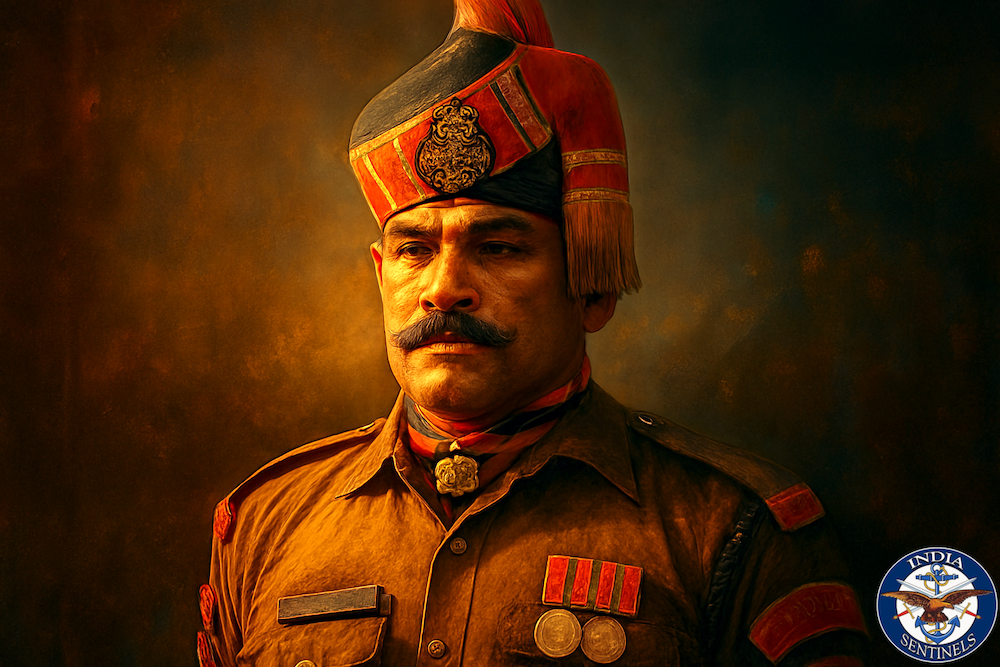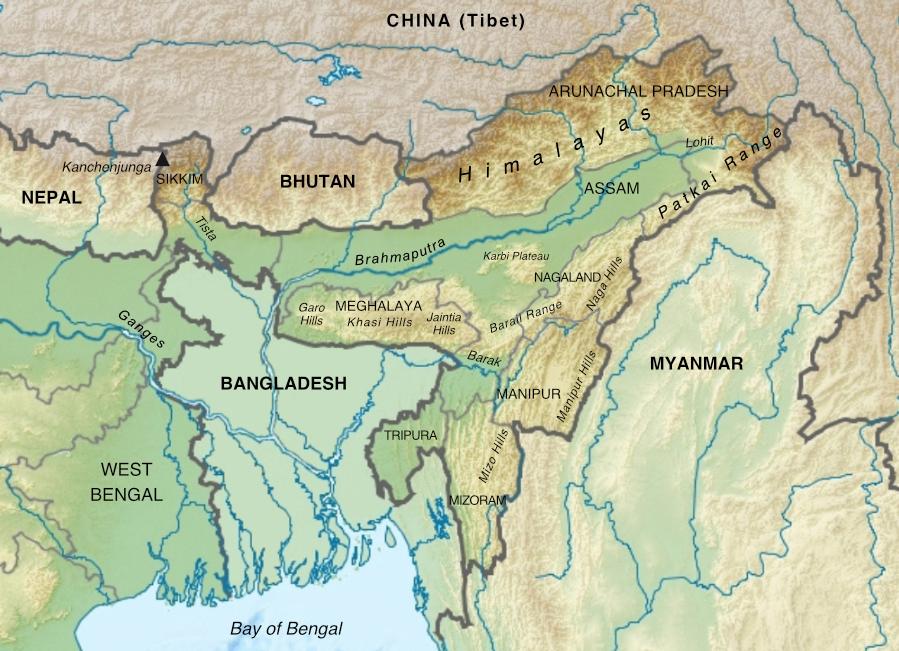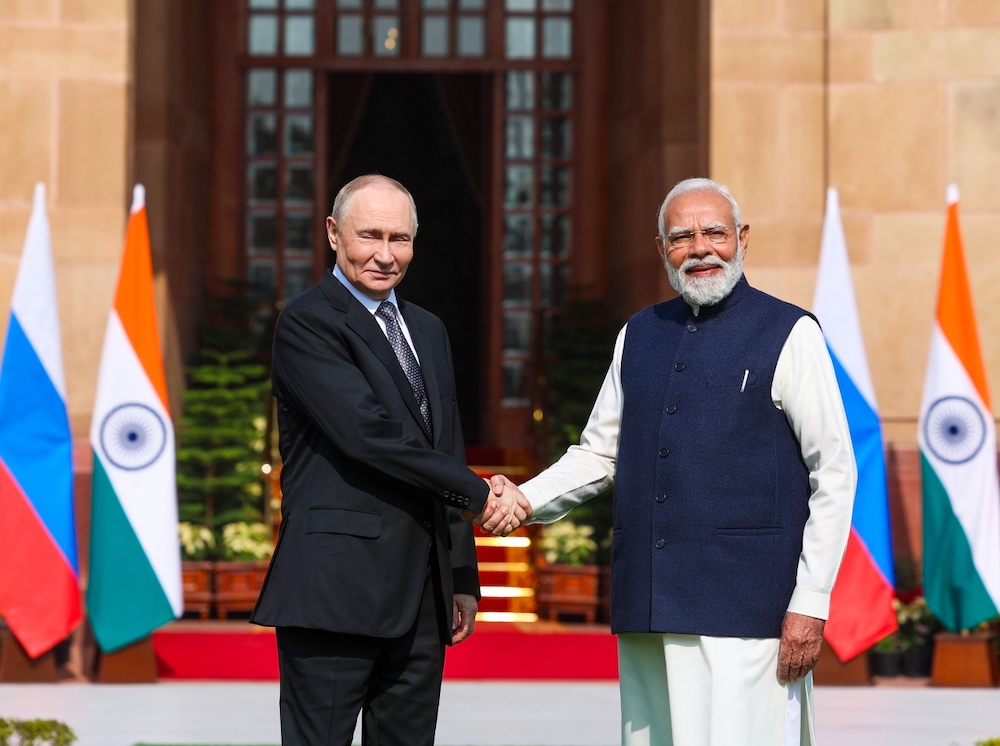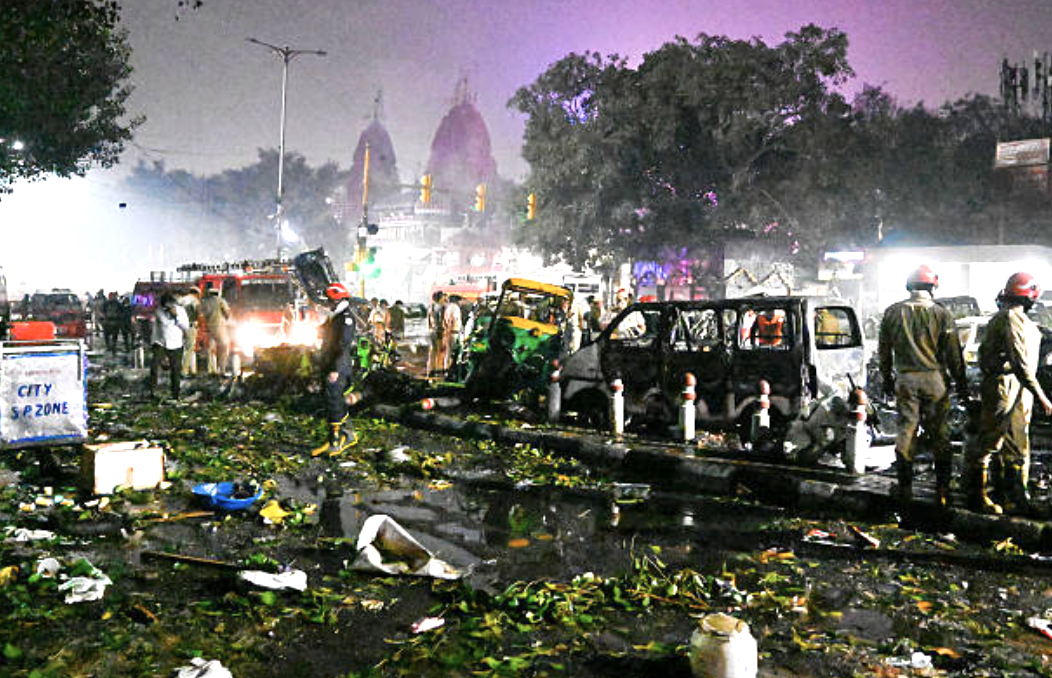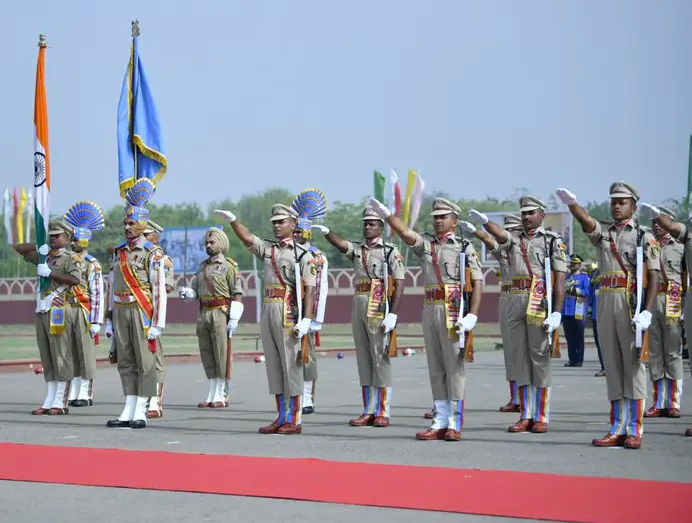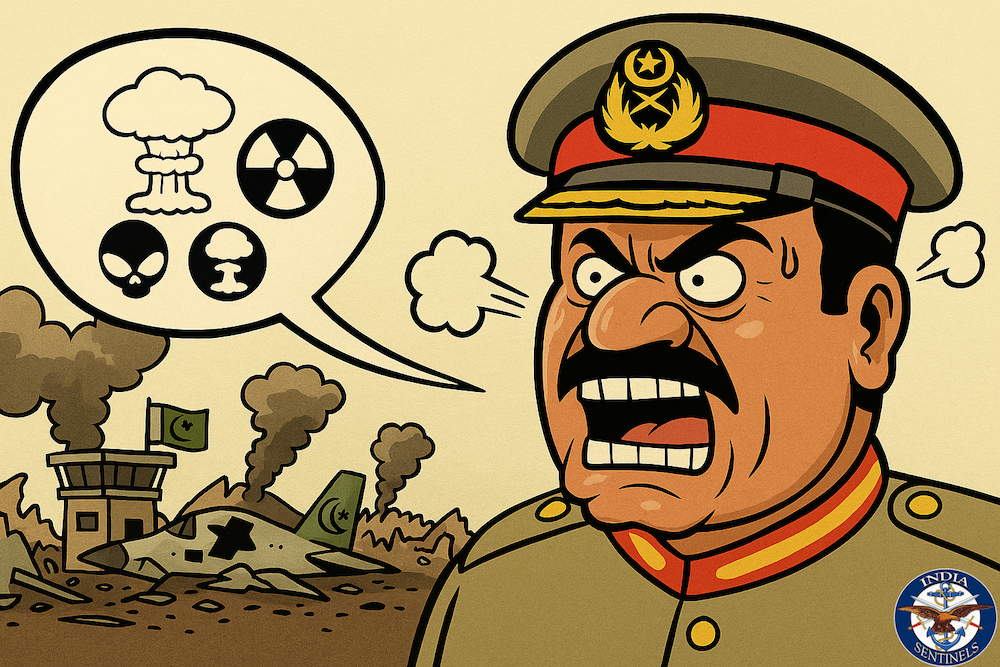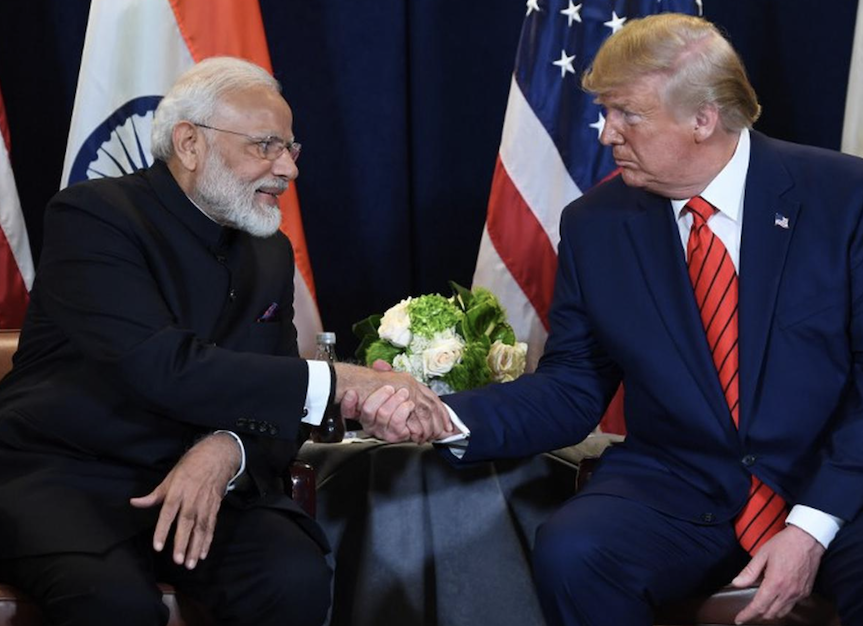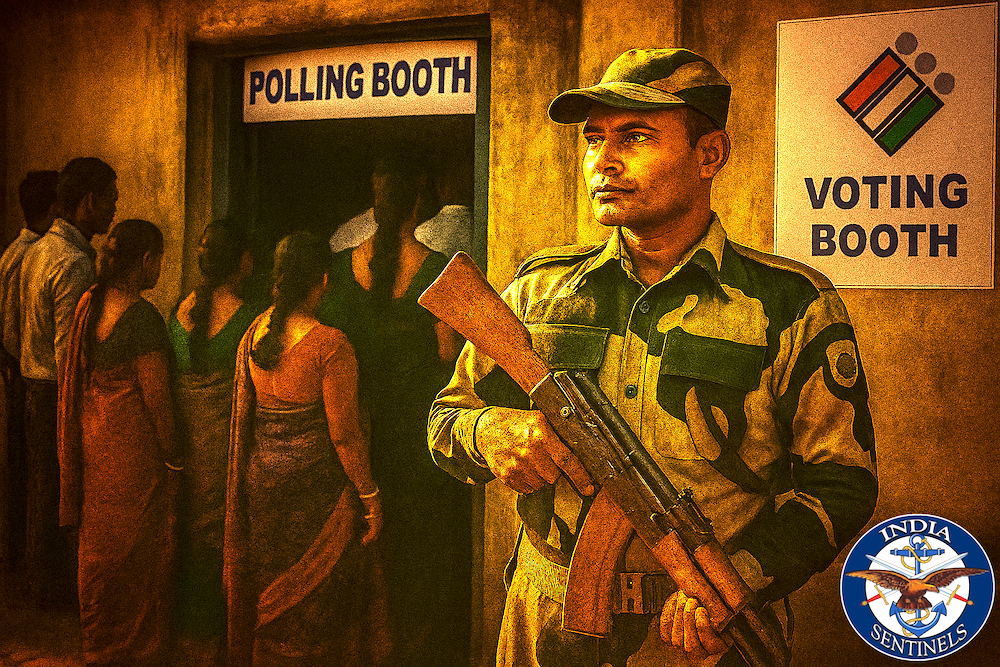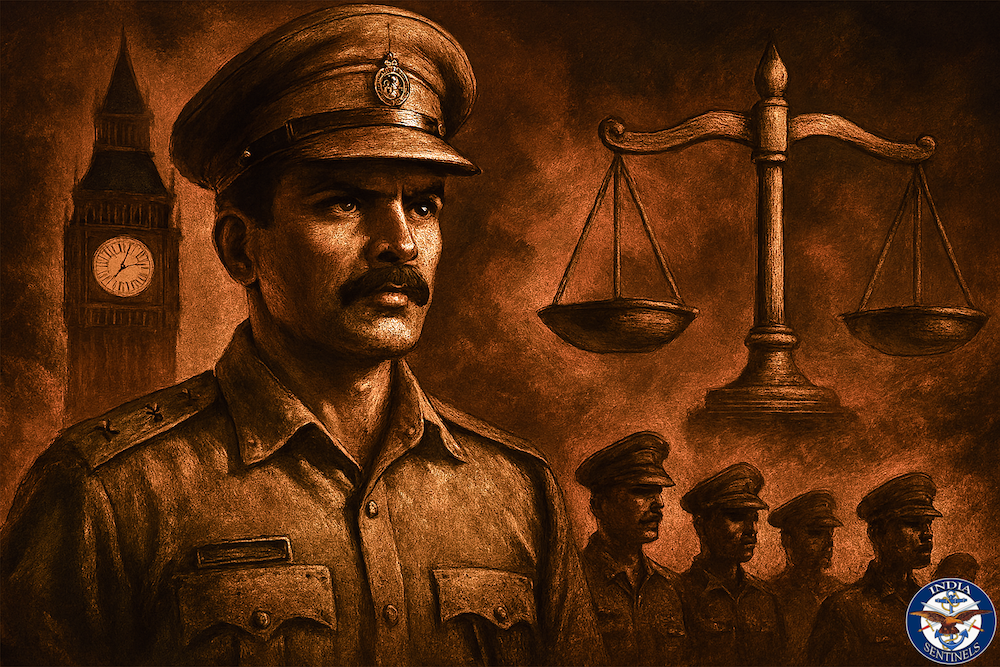 Illustration for representation. (© India Sentinels 2025–2026)
Illustration for representation. (© India Sentinels 2025–2026)
Winston Churchill, ever the sceptic of Indian administrative capabilities, once declared: “To give India self-government now would mean the end of any prospect of India becoming a nation, it would mean the introduction of chaos, famine, and fratricidal strife such as has never been seen in world’s history.”
History proved Churchill spectacularly wrong. India not only gained independence but has demonstrated remarkable administrative capabilities across seven decades. Yet despite this transformation, a troubling colonial mindset persists within government institutions, particularly in how certain services are treated with contempt despite their professional credentials and nationally recognized contributions.
Read also: Despite compulsive détente, China frontier paradox remains for India
Lingering Imperial Legacy
The Imperial Police Service epitomized colonial control mechanisms designed to subjugate Indians. Superior police services formed the officer cadre, with members required to bear the letters “IP” on their epaulettes from 1907 onwards – a visible marker distinguishing those recruited through competitive examinations from their subordinates.
After independence, the All India Services emerged, and the “Imperial Police Service” morphed into the “Indian Police Service” with largely cosmetic changes. The colonial Police Act, its ethos, and crucially, its hierarchical mindset remained largely intact.
This persistence of colonial attitudes becomes particularly glaring when examining how central armed police forces (CAPF) officers are treated today – officers who serve as the backbone of India’s internal security apparatus.
Read also: Supreme Court’s CAPF judgment demands immediate implementation
Modi’s Vision vs Ground Reality
The prime minister, Narendra Modi, articulated a transformative vision during his Independence Day speech on August 15, 2022. Marking the 76th year of India’s independence, he introduced the concept of “Panch Pran” – five resolves that would guide the nation forward.
The second most important resolve focused on eradicating colonial mindset entirely. Modi emphasized removing “any trace of colonial mindset” from Indian society, institutions, and individual consciousness. His words were unambiguous: “In no part of our existence, not even in deepest corners of our mind or habits should there be any ounce of slavery.”
Yet despite this clarion call, colonial attitudes persist stubbornly in government’s treatment of CAPF cadre officers. The reluctance to grant these officers their constitutional due, despite successive court judgments in their favour, reveals how deeply entrenched these attitudes remain.
Read also: CAPF Leadership Crisis – Supreme Court speaks, government must act
Decades-Long Legal Battle
The struggle for recognition began in earnest in 2012 when CAPF officers approached the Delhi high court seeking “organized Group A service” (OGAS) status and non-functional financial upgradation (NFFU) benefits. In 2016, the court ruled decisively in their favour.
However, the Union home ministry chose not to implement the judgment for CAPF officers, forcing them into further litigation. Ironically, the railway ministry implemented the ruling for Railway Protection Force (RPF) cadre officers – another armed force of the Indian Union – highlighting the same government’s discriminatory approach towards CAPF cadre officers.
In 2019, the government finally recognized CAPFs as OGAS but implemented a truncated and selective version of NFFU. This half-measure applied only to officers of deputy inspector general rank and above, subject to promotion rules eligibility criteria. Since flag officers constitute a miniscule percentage of the force, the majority of CAPF cadre officers remained denied their rightful benefits.
Read also: Border security or border combat? India’s western challenge
Supreme Court’s Decisive Verdict
Forced to fight battles on two fronts – upholding national security in the field and pursuing justice in courts – CAPF officers approached the Supreme Court. On May 23, 2025, the apex court delivered a comprehensive judgment granting CAPF cadre officers both OGAS status and NFFU benefits.
Any constitutional government would be expected to implement the Supreme Court’s directive promptly. Instead, the Centre filed a review petition in a last-ditch effort to deny these benefits to officers who risk their lives daily for national security.
Flawed Arguments, Colonial Mindset
The government’s reasoning in the review petition reveals troubling logical inconsistencies and exposes the very colonial mindset that Modi’s Panch Pran seeks to eliminate.
The primary argument suggests that CAPFs cannot seek parity with other OGAS because they have “primarily an office-type structure entirely different from CAPFs.” This reasoning is not only flawed but inadvertently undermines the government’s own position on the Indian Police Service.
If accepted at face value, this argument effectively detaches the Indian Police Service from national security responsibilities. It suggests that IPS officers function in “office-like structures” with no connection to national security – a position that contradicts the government’s frequent assertions that ending IPS deputation would compromise national security.
Read also: Decoding Pakistan’s strategic gambit under Field Marshal Asim Munir
Strength Argument Unravels
The government’s emphasis on structural differences based on troop strength applies equally to Indian Police Service officers. IPS officers form less than two per cent of police organizations, which comprise district police, ranges, zones, and state armed police battalions. The remaining 98-99 per cent consists of subordinate police personnel.
Using the government’s own logic, IPS officers should be ineligible for OGAS status due to their miniscule percentage within the larger police structure. No rational pay structure determination considers subordinate strength when deciding officer cadre benefits – such criteria would be discriminatory and illogical.
This approach reflects bureaucratic power structures and pressure group influences rather than professional considerations or merit-based assessment.
Read also: Border Security Force is an armed force, not police, nation must know
Troop Structure Misconception
The argument about “absence of troop-like structure in OGAS” fundamentally misunderstands how uniformed services operate. All uniformed services, including the Indian Police Service, function within hierarchical, disciplined structures that mirror military organizations.
The police and state armed police battalions commanded by IPS officers maintain troop-like structures identical to CAPFs. Yet IPS enjoys OGAS status despite this structural similarity. This contradiction exposes the arbitrary nature of the government’s position.
Both CAPF officers’ cadre and the All India Police Service derive their constitutional authority from parliamentary approval. They stand on equal footing regarding OGAS and NFFU entitlements.
The argument about pyramidical rank structures applies universally to police, IPS, and all uniformed organizations. Police forces are regularly deployed for national security duties and frequently relocate based on operational requirements – exactly like CAPFs.
Claiming that geographical mobility is unique to CAPFs demonstrates a fundamental misunderstanding of how security forces operate across India.
Read also: BSF must brainstorm to meet dynamic battle challenges
Beyond Legalities
The Supreme Court examined these arguments comprehensively during hearings, considering evidence before delivering its verdict. The court established clear timelines for implementation, recognizing the legitimate grievances of officers who serve the nation with distinction.
The review petition appears designed primarily to delay implementation rather than address substantive legal concerns. This approach epitomizes the colonial mindset that Modi’s Panch Pran specifically targets for elimination.
CAPF officers are recruited through nationwide competitive examinations just like the Union Public Service Commission examination system used for IPS recruitment. They undergo rigorous training, serve in challenging environments, and often make the ultimate sacrifice for national security. Yet they face systematic discrimination in career progression and financial recognition.
This treatment contradicts not only constitutional principles of equality but also the government’s own stated commitment to eradicating colonial attitudes. When institutions perpetuate discrimination against those who protect the nation, they undermine the very foundations of democratic governance.
Read also: How BSF’s ‘offensive defence’ thwarted Pakistan’s designs during Op Sindoor
The Path Forward
The government must implement the Supreme Court judgment dated May 23, 2025, immediately and unconditionally. Half-measures and bureaucratic delays only reinforce the colonial mindset that independent India must finally abandon.
The prime minister’s vision of Panch Pran demands more than rhetorical commitment – it requires transformative action that aligns government practice with proclaimed principles. The treatment of CAPF officers serves as a litmus test for this commitment.
India’s administrative capabilities, dismissed so contemptuously by Churchill, have proven themselves repeatedly over seven decades. It is time for Indian institutions to demonstrate equal capability in treating their own officers with the dignity and respect they deserve.
The choice is clear: implement constitutional court directives and honour those who serve the nation, or perpetuate colonial-era discrimination that has no place in modern India. The government must walk the talk on its own resolve reflected in the prime minister’s Panch Pran.
Justice delayed is justice denied – and for CAPF officers who risk everything for national security, further delays constitute not just administrative failure but moral abdication of responsibility.
Disclaimer: The views expressed in the article are the author’s own and don’t necessarily reflect the views of India Sentinels.
Follow us on social media for quick updates, new photos, videos, and more.
X: https://twitter.com/indiasentinels
Facebook: https://facebook.com/indiasentinels
Instagram: https://instagram.com/indiasentinels
YouTube: https://youtube.com/indiasentinels
© India Sentinels 2025-26

